In what appears to be a hit below the belt and a coordinate attacks against China in the second phase of a trade war between the Middle Kingdom and the U.S., Trump has banned Huawei. The U.S. president’s executive order effectively prohibits U.S. companies from selling semiconductors to (or buying technological equipment from) the China’s largest technology company.
By adding Huawei to the so-called Entity List, American firms are essentially disallowed from selling technology to the Chinese company without first obtaining a license from the U.S. government. Washington claimed that the ban on Huawei was due to “national security”. But every Tom, Dick and Harry knew Huawei is targeted due to the ongoing US-China trade war.
Last year, Huawei purchased a whopping US$11 billion worth of computer chips and other components from American tech firms. That speaks volumes about how much the company depends on American chipmakers, the same way the U.S. companies rely on the Chinese tech giant for access to the nation’s market share.
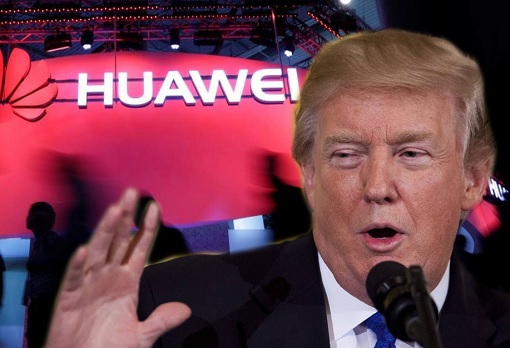
However, considering that Huawei successfully sold 200 million smartphones and hit 721.2 billion Yuan (US$107.45 billion; £82.38 billion; RM438.67 billion) in sales last year, it would take more than just an executive order from President Trump to exterminate the Chinese giant. David Wang, Huawei’s executive director, said that new U.S. restrictions would have little effect on the tech giant’s business prospects.
Similarly, Huawei Technologies’ founder and chief executive, Ren Zhengfei, blasted the Trump administration’s decision and insists the Chinese telecom equipment maker has done nothing illegal. Mr. Ren also said the impact of the U.S. ban on Huawei’s business will be limited, and expressed confidence in its longer-term outlook.
But the fact remains that over 30 American companies supply core components to Huawei, including Qualcomm, Broadcom and Intel. Huawei, in its attempt to calm the business community, said it actually has been preparing for exactly the situation it now faces. Huawei’s fully-owned HiSilicon Technologies, which designs core processor chips, has made plans to deal with a potential disruption in supply.
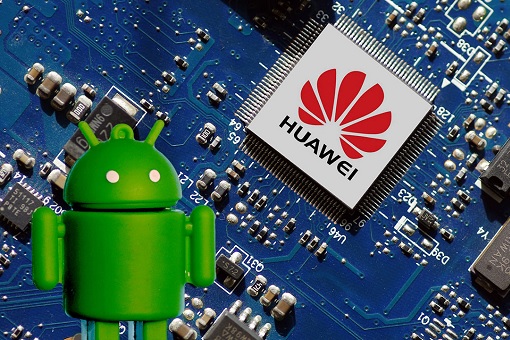
Hardware disruption is just one area which Huawei might be affected. In a stunning move that could threaten Huawei’s global ambitions to take over from Samsung as the world’s biggest smartphone maker, Google has dropped a bombshell when it announced its decision to stop licensing its Android operating system for the Chinese telecommunications firm – in order to comply with a U.S. trade blacklist.
What that means is Huawei will no longer enjoy access to Android updates. It also means Huawei will only be able to use a public version of Google’s operating system through the Android Open Source Project. A new purchase of Huawei’s phone will also lose access to proprietary apps like the Google Play app store, Gmail and YouTube.
Google, however, assures people with existing Huawei devices that they will still be able to use Google apps and download updates for them. Interestingly, the havoc of not being able to run Google apps only confined to international consumers. In China, it’s a totally different story as Huawei uses a modified version of Android that doesn’t have Google apps pre-installed, thanks to Google service blockage.
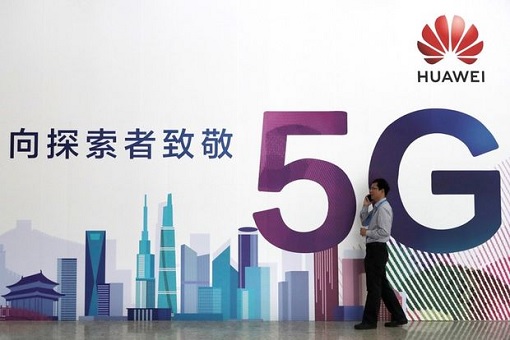
Because international shipments accounted for almost half of Huawei’s overall smartphone sales in markets outside of China, the impact could be huge in the long term. In March, Huawei revealed that it had developed its own operating system for its consumer products if there came a time it was not able to use Google’s or Microsoft’s.
So, as early as 2 months ago, Huawei already knew their gadgets would probably be targeted by Trump administration. What is unknown is whether consumers can accept the Chinese tech giant’s own developed operating system. Days ago, Nikkei Asian Review reported that Huawei told global suppliers 6 months ago that it wanted to build up a year of crucial components to prepare for trade wars.
That means Huawei may have stockpiled components to produce up to 200 million of smartphones. Knowing China, they probably have also figured out the workaround – probably via a third party – to download Android apps or services. But Beijing probably isn’t impressed with Trump’s little dirty trick of forcing American technology companies to suspend business ties with Huawei.
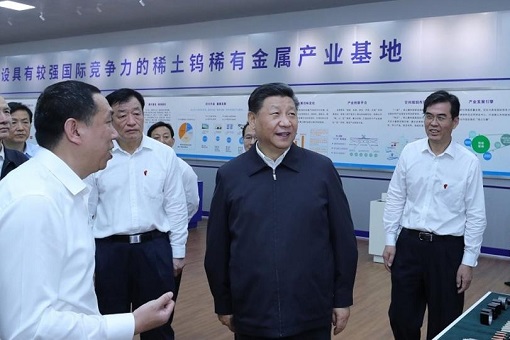
When the official Xinhua news agency deliberately reported President Xi Jinping’s visit to the country’s rare earth mining base in Jiangxi province on Monday, it raises eyebrows. Chinese leaders have a habit of not trumpeting what they plan to do next, but would instead let its news media do the talking. Hence, speculations that Beijing could consider weaponize minerals such as rare earth against the U.S.
Accompanied by Vice-Premier Liu He, Xi’s most trusted adviser whom was appointed as a special envoy with authority to negotiate directly on trade matters with the U.S. recently, the Chinese president’s visit to one of the nation’s major rare earths mining and processing facilities can be interpreted as sending a strong message of China’s determination and defiance against the U.S.
Rare earth is a group of metals and alloys that contain a set of 17 chemical elements that have magnetic and optical properties useful for making electronic components like computer memory, DVDs, rechargeable batteries, cell phones, catalytic converters, magnets and whatnot. Although not as rare as gold or silver, extraction and refinement of rare earth are costly and dangerous, not to mention “environment dirty”.
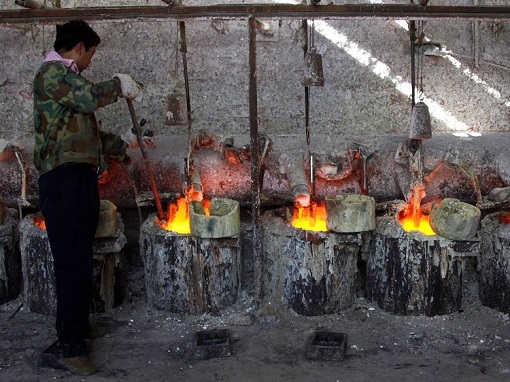
For example, the Asian Rare Earth factory built in Bukit Merah, Perak, Malaysia in 1982 has seen radioactive pollution and health problems – infant deaths, congenital disease, leukemia and lead poisoning – even decades after it was closed in 1992. An estimated RM100 million was required to clean up the factory and dump site in Bukit Merah.
As the world’s biggest producer – about 90% of rare earth elements of the global supply – the U.S. depended on China for about four of every five tons of rare-earths imports between 2014 and 2017. The lack of domestic rare earth supplies would undermine a competitive modern economy and a strong military for the U.S. Yes, as it turned out, rare earth is a critical component to make weapons.
Terbium, dysprosium, samarium, praseodymium and neodymium are some high-tech names of rare earth exotic elements critical in making missiles and bombs, as well as electric motors and batteries for U.S. Navy’s destroyers. Rare earth element rhenium is a key component of jet engines for U.S. Air Force’s F-15, F-16, F-22 Raptor and the F-35 Joint Strike FIghters.

Sure, the U.S. can build their own plants to produce rare earth, if they don’t mind the environmental issues. But that would take years. Blue Line Corporation, a US company, and Lynas Corp., an Australian miner propose to build the first rare-earths plant in the U.S. in years. Lynas, the world’s only major producer of rare earth minerals outside China, faces regulatory issues at its processing plant in Malaysia.
The strategic importance of rare earth in the present US-China trade war can be seen when President Trump exempted U.S. imports of rare earths from the latest round of tariffs imposed on Chinese goods. In 2017 alone, China mined 105,000 metric tons of rare earth metals, while the U.S. has only produced about 43,000 metric tons in the last 20 years combined.
Hence, the visit to a rare earth plant by President Xi sends a message to President Trump – the U.S. may lose 80% of the supply of its rare earth imports anytime from China. The issue here isn’t about the value of the rare earth imports by the U.S., but rather the supply chain. After all, the U.S. imported only US$160 million worth of rare earth from China last year.
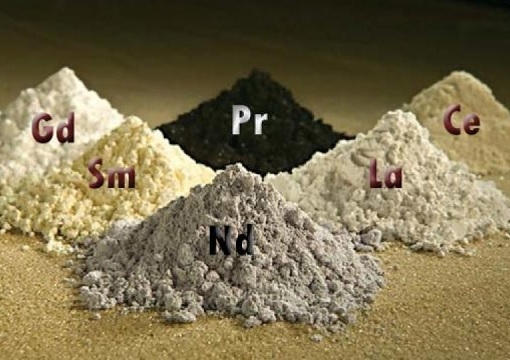
Clearly, losing the US$160 million business is just s drop in the ocean for China. So, to retaliate against the U.S.’ ban on Huawei, China can easily deliver a deadly punch – bans export of rare earth to America. Beijing has actually weaponized rare earth before when it banned rare earth exports to Japan during a diplomatic standoff between the two countries in 2010.
Other Articles That May Interest You …
- China’s New Message To The U.S. – “Negotiate – Sure!”, “Fight – Anytime!”, “Bully Us – Dream On!”
- Trump Is Bluffing – He Will Not Let The Stock Market Collapse, And He Lied About Forcing China To Pay $100 Billion
- How Trump’s 102-Word Tweets Erased US$2 Trillion Off Global Stock Markets
- Trade War Could Continue – Financial Chaos Again After Trump Threatened China With New Tariffs
- As Huawei Hits $100 Billion Revenue, Chairman Said The U.S. Has “Loser’s Attitude” & “Table Manners” Problem
- “You Cannot Crush Us” – Huawei Founder Warned About Shifting Investment From The U.S. To U.K.
- Huawei Strikes Back – U.S. Fears Of Being Left Behind, Fails To Hack Into Huawei To Spy
- What Trade War? US Trade Deficit With China Hits Record High $323.32 Billion Last Year
- From Trade War To Political Kidnapping – Two Canadians Held “Hostage” As China Retaliates
- China Invasion – Top 10 American Iconic Brands Now Owned By Chinese

|
|
May 21st, 2019 by financetwitter
|


|

|

|

|

|

|




























This is becoming a war of attrition in which no one wins.